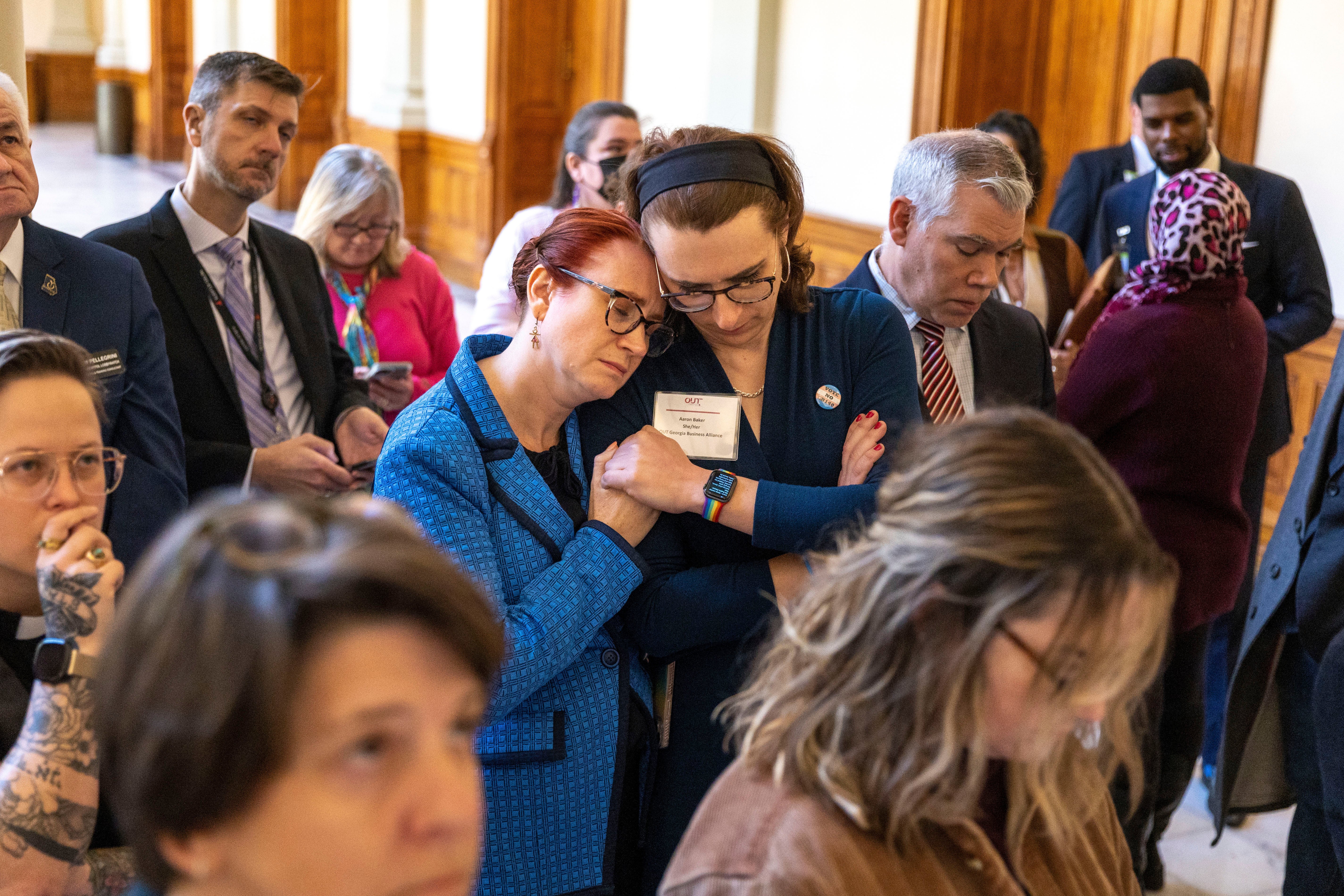Judge allows Georgia to resume enforcing ban on hormone replacement therapy for transgender youth
A federal judge in Atlanta has allowed Georgia to resume enforcing a ban on hormone replacement therapy for transgender people under 18

Your support helps us to tell the story
From reproductive rights to climate change to Big Tech, The Independent is on the ground when the story is developing. Whether it's investigating the financials of Elon Musk's pro-Trump PAC or producing our latest documentary, 'The A Word', which shines a light on the American women fighting for reproductive rights, we know how important it is to parse out the facts from the messaging.
At such a critical moment in US history, we need reporters on the ground. Your donation allows us to keep sending journalists to speak to both sides of the story.
The Independent is trusted by Americans across the entire political spectrum. And unlike many other quality news outlets, we choose not to lock Americans out of our reporting and analysis with paywalls. We believe quality journalism should be available to everyone, paid for by those who can afford it.
Your support makes all the difference.Georgia can resume enforcing a ban on hormone replacement therapy for transgender people under 18, a judge ruled Tuesday, putting her previous order blocking the ban on hold after a federal appeals court allowed Alabama to enforce a similar restriction.
Attorneys for the state had asked Judge Sarah Geraghty to vacate the preliminary injunction in light of the Alabama decision.
Geraghty did not go that far, but she also said keeping her injunction in place was not possible after last month's ruling on Alabama's law by a three-judge panel of the 11th Circuit Court of Appeals, which includes Georgia. She instead issued a stay, or hold, on her injunction in anticipation of a possible rehearing of the Alabama case before a larger panel of the court's judges.
The Associated Press sent an email seeking comment to a spokeswoman for the Georgia attorney general’s office. Attorneys for the plaintiffs in the Georgia case said they would comment later Tuesday.
The 11th Circuit panel's ruling last month said Alabama can implement a ban on the use of puberty blockers and hormones to treat transgender children. It came a day after Geraghty issued her preliminary injunction.
The Georgia law, Senate Bill 140, allows doctors to prescribe puberty-blocking medications, and it allows minors who are already receiving hormone therapy to continue. But it bans any new patients under 18 from starting hormone therapy. It also bans most gender-affirming surgeries for transgender people under 18.
It took effect July 1. Geraghty granted a preliminary injunction blocking it on Aug. 20. The injunction was sought by several transgender children, parents and a community organization in a lawsuit challenging the ban.
In her August decision, Geraghty said the transgender children who sought the injunction faced “imminent risks” from the ban, including depression, anxiety, eating disorders, self-harm, and suicidal thoughts. She said those risks outweighed any harm to the state from an injunction.
The 11th Circuit judges who ruled on Alabama’s law said states have “a compelling interest in protecting children from drugs, particularly those for which there is uncertainty regarding benefits, recent surges in use, and irreversible effects.”
Doctors typically guide children toward therapy or voice coaching long before medical intervention.
At that point, puberty blockers and other hormone treatments are far more common than surgery. They have been available in the U.S. for more than a decade and are standard treatments backed by major doctors organizations, including the American Medical Association.
At least 22 states have now enacted laws restricting or banning gender-affirming medical care for transgender minors. Most of those states have been sued.